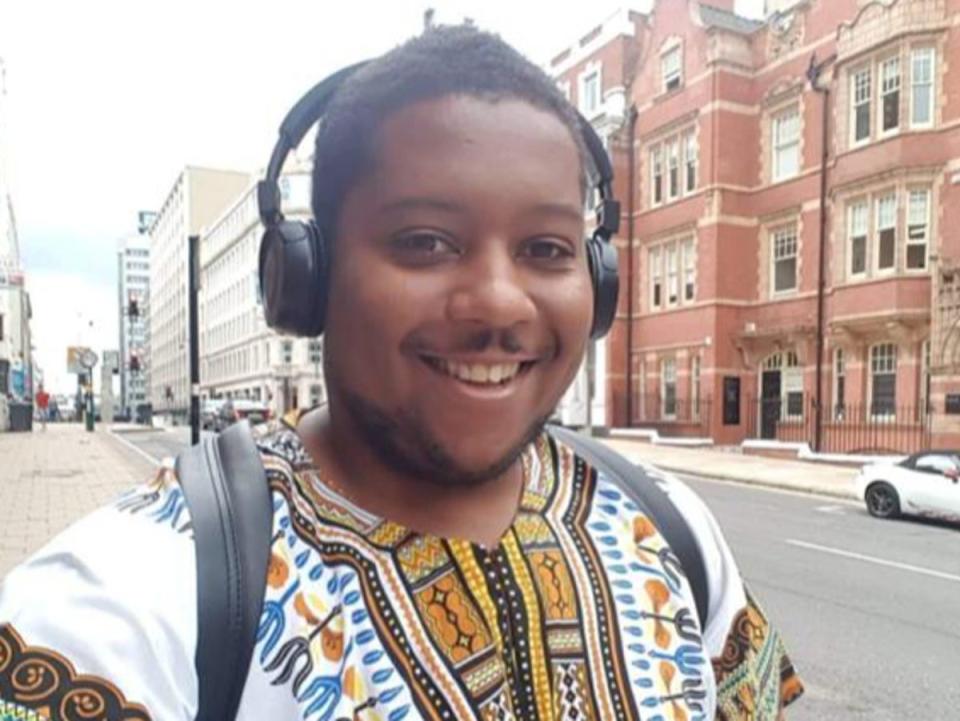Diabetic man, 27, died after GPs ‘failed to investigate rapidly deteriorating health’

A 27-year-old man died from complications linked to diabetes after GPs failed to properly investigate his rapidly deteriorating health.
Lugano Mwakosya died on 3 October 2020 from diabetic ketoacidosis, a build-up of toxic acids in the blood arising from low insulin levels.
His mother, Petronella Mwasandube, believes his death could have been avoided if doctors at Strensham Road Surgery, in Birmingham, had given “adequate consideration” to Lugano’s diabetic history and offered face-to-face appointments following phone consultations on 31 July and 16 and 30 September.
An independent review commissioned by NHS England found two doctors who spoke to Lugano did not take into account his diabetes or “enquire in detail and substantiate the actual cause of the patient’s symptoms”.
Lugano first complained of fatigue and feeling breathless in July, but was told he was “very likely” suffering post-Covid symptoms from an earlier infection.
By mid-September, he was complaining of severe fatigue and breathlessness after walking just 200 yards, having previously walked five miles a day during the first lockdown of 2020.
On 30 September, he reported dizziness, vomiting and weakness to his doctor, who spoke with him via the phone for less than three minutes and booked an appointment for two days later. Lugano failed to attend and was found dead in his flat the following day.
The review raised concern over the “quality and brevity” of the phone assessments and said the surgery should have offered Lugano an in-person appointment sooner.
In a document seen by The Independent, lawyers representing the surgery admitted in a letter to Osbornes Law, the firm handling Ms Mwasandube’s legal claim, that a face-to-face consultation should have been offered on 30 September.
Had he attended, they said, Lugano would have been “considered” for ketoacidosis and “urgently referred” to hospital.

“If the claimant had then attended hospital, on the balance of probability, treatment would have been successful,” the lawyers said.
However, the surgery did not admit liability for Lugano’s death. The independent review said that he had a history of missing appointments and was “non-compliant” with using his insulin medication. “This probably contributed to his death,” the review added.
NHS England (NHSE) apologised for the sub-standard quality of care provided to Lugano by Strensham Surgery. The independent review recommended that NHSE’s professional standards team investigate the case further.
Ms Mwasandube says the surgery was “very dismissive” of her complaint and claims the practice told her: “Your son’s case is taking up too much of our doctor’s time.”
Dr M Ahmad, who conducted the independent review, said he was “concerned that red flag signs of breathless when using stairs and weight loss have not resulted in the patient being seen face to face on that day or soon after”.
He adds: “There is limited history taken and no real concerted effort to determine what the cause of the symptoms are and offer safety netting or a formal follow up, instead relying on blood tests.”

Lugano attended the surgery on 24 September for blood tests and underwent a routine diabetic review with a nurse, who arranged a phone consultation on 28 September with a third doctor due to a rash that had emerged on his groin.
The blood results returned abnormal levels of B12, iron, uric acid, cholesterol and vitamin D, the significance of which “in the context of his symptoms is difficult to comment upon”, Dr Ahmad said, and further tests were ordered.
Lugano spoke with a third doctor on 30 September, after missing his scheduled telephone consultation two days earlier.
He complained he had been experiencing nausea for the past week, was unable to walk across his flat without stumbling and had vomited five times.
During the call, which lasted just under two minutes and 30 seconds, the doctor told Lugano to come to the surgery in two days’ time, on 2 October, for an in-person appointment. But he failed to attend and was found dead on 3 October.
Dr Partha Kar, a diabetes consultant at Portsmouth Hospitals, told The Independent that diabetic ketoacidosis (DKA) can present “for many hours and days” before a patient is admitted to hospital. “Most are hospitalised because they don’t know the warning signs to look out for”.
In light of Lugano’s symptoms on 30 September, he was “very likely starting to move into” DKA, added Dr Kar.
According to Dr Ahmad’s review, the doctor who spoke to Lugano on 30 September agreed that the consultation was brief and “not done to the best of [their] ability”. He acknowledged “the patient should have been brought in for a face-to-face review”.
In his findings, Dr Ahmad said that the second and third doctors who spoke with Lugano “have not taken not [sic] account the patient’s diabetes condition and not enquired about it”. The latter “failed to consider the relevance and discuss the abnormal blood tests” from 26 September.
Lawyers representing the surgery said: “It is denied that there was any need for a face-to-face consultation prior to 30 September 2020.
“The beneficiaries were aware of Mr Mwakosya’s vulnerability and his chronic diabetes, which were factors militating against having a face-to-face assessment during the pandemic.
“It is further denied that there was any need for a face-to-face consultation on 16 September 2020.”

 Yahoo News
Yahoo News 
